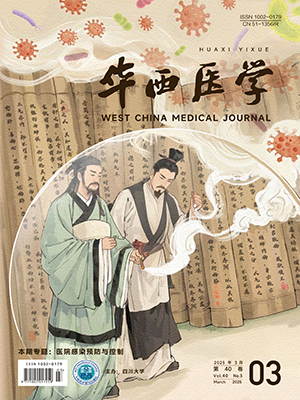| 1. |
Betjemann JP, Lowenstein DH. Status epilepticus in adults. Lancet Neurol, 2015, 14(6): 615-624.
|
| 2. |
Brophy GM, Bell R, Claassen J, et al. Guidelines for the evaluation and management of status epilepticus. Neurocrit Care, 2012, 17(1): 3-23.
|
| 3. |
DeLorenzo RJ, Hauser WA, Towne AR, et al. A prospective, population-based epidemiologic study of status epilepticus in Richmond, Virginia. Neurology, 1996, 46(4): 1029-1035.
|
| 4. |
Hesdorffer DC, Logroscino G, Cascino G, et al. Incidence of status epilepticus in Rochester, Minnesota, 1965-1984. Neurology, 1998, 50(3): 735-741.
|
| 5. |
Li JM, Chen L, Zhou B, et al. Convulsive status epilepticus in adults and adolescents of Southwest China: mortality, etiology, and predictors of death. Epilepsy Behav, 2009, 14(1): 146-149.
|
| 6. |
Zhou B, Huang Y, Wang J, et al. The aetiology of convulsive status epilepticus: a study of 258 cases in Western China. Seizure, 2014, 23(9): 717-721.
|
| 7. |
Engel J Jr. Report of the ILAE classification core group. Epilepsia, 2006, 47(9): 1558-1568.
|
| 8. |
National Clinical Guideline Centre. The epilepsies: the diagnosis and management of the epilepsies in adults and children in primary and secondary care: pharmacological update of clinical guideline 20. London: Royal College of Physicians (UK) , 2012.
|
| 9. |
Trinka E, Cock H, Hesdorffer D, et al. A definition and classification of status epilepticus--report of the ILAE task force on classification of status epilepticus. Epilepsia, 2015, 56(10): 1515-1523.
|
| 10. |
Treatment of convulsive status epilepticus. Recommendations of the Epilepsy Foundation of America’s Working Group on Status Epilepticus. JAMA, 1993, 270(7): 854-859.
|
| 11. |
Chin RF, Neville BG, Scott RC. A systematic review of the epidemiology of status epilepticus. Eur J Neurol, 2004, 11(12): 800-810.
|
| 12. |
Knake S, Rosenow F, Vescovi M, et al. Incidence of status epilepticus in adults in Germany: a prospective, population-based study. Epilepsia, 2001, 42(6): 714-718.
|
| 13. |
DeLorenzo RJ, Pellock JM, Towne AR, et al. Epidemiology of status epilepticus. J Clin Neurophysiol, 1995, 12(4): 316-325.
|
| 14. |
Hui AC, Joynt GM, Li H, et al. Status epilepticus in Hong Kong Chinese: aetiology, outcome and predictors of death and morbidity. Seizure, 2003, 12(7): 478-482.
|
| 15. |
Phabphal K, Geater A, Limapichart K, et al. Adult tonic-clonic convulsive status epilepticus over the last 11 years in a resource-poor country: a tertiary referral centre study from Southern Thailand. Epileptic Disord, 2013, 15(3): 255-261.
|
| 16. |
King EJ, Ferrie CD, Livingston JH, et al. Recovery of consciousness following acute symptomatic seizures due to central nervous system infections in children. Dev Med Child Neurol, 2012, 54(4): 324-327.
|
| 17. |
Murthy JM, Jayalaxmi SS, Kanikannan MA. Convulsive status epilepticus: clinical profile in a developing country. Epilepsia, 2007, 48(12): 2217-2223.
|
| 18. |
Legriel S, Mourvillier B, Bele N, et al. Outcomes in 140 critically ill patients with status epilepticus. Intensive Care Med, 2008, 34(3): 476-480.
|
| 19. |
陈贺. 中国交通事故死亡状况及酒驾处罚对交通事故死亡率的影响. 北京: 中国疾病预防控制中心, 2017.
|
| 20. |
Rossetti AO, Logroscino G. Re: in-hospital mortality of generalized convulsive status epilepticus: a large US sample. Neurology, 2008, 70(20): 1939.
|
| 21. |
Strzelczyk A, Zöllner JP, Willems LM, et al. 拉科酰胺在癫痫持续状态中的应用—针对现有证据的系统评价. 肖英凤, 译, 童馨, 慕洁, 审. 癫痫杂志, 2018, 4(5): 446-460.
|




